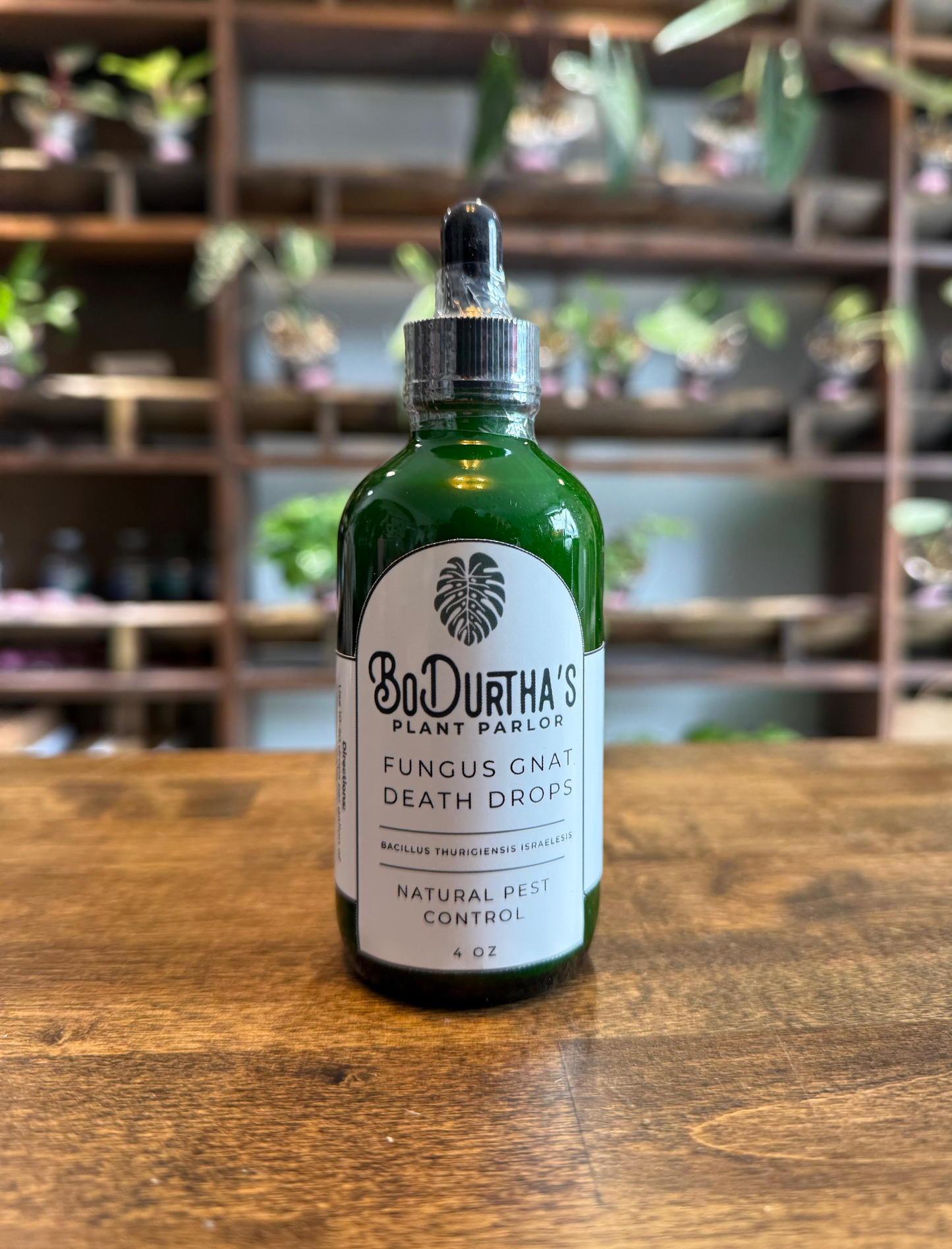BoDurtha's Plant Parlor
BTI Drops - Fungus Gnat Treatment
BTI Drops - Fungus Gnat Treatment
Couldn't load pickup availability
Overview
- Targets fungus gnat larvae at the root level
- Biological control using naturally occurring soil bacteria
- Safe for houseplants, people, and pets when used as directed
- Leaves no chemical residue in your soil
Bacillus thuringiensis israelensis (BTI) is a naturally derived bacterium used to effectively control fungus gnat infestations by interrupting their life cycle at the larval stage. These drops offer a clean, odorless, and precise method of application—ideal for plant lovers who prefer gentle but effective biological control over chemical solutions.
How It Works
BTI bacteria release specific proteins that, when ingested by fungus gnat larvae living in moist soil, disrupt their digestive systems. The result is a safe, targeted elimination of the larval population—stopping the next generation before it starts.
Application Instructions
For houseplants in soil:
- Add 1 tbsp per gallon of water
- Use this treated water during regular watering routines
- Reapply weekly until fungus gnat activity ceases
- Continue monthly as a preventative, especially in high-humidity seasons
Safety & Compatibility
- Safe for use on all indoor plants, including aroids, ferns, and carnivorous species
- Non-toxic to people, pets, and beneficial insects when used as directed
- Leaves no harmful residue in your potting mix or water runoff
Why We Recommend It
Fungus gnats are a common nuisance in healthy, humid plant environments. BTI offers a solution that aligns with our values: minimal impact, maximum effectiveness, and full respect for the ecological balance of your plant’s soil biome. It’s a quiet hero in a dropper bottle—clean, easy, and reliable.
Pro Tip
Combine with proper watering practices and topsoil management for best results. Avoid overwatering and consider adding a thin layer of horticultural sand or gravel to the soil surface to discourage egg-laying.


